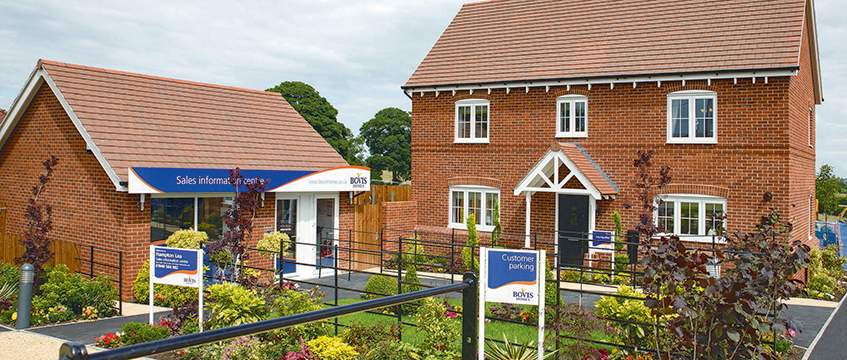Some of the largest housebuilders have warned of tough economic conditions ahead, mapping out plans to handle rising costs even as they report robust results.
Vistry Group announced better-than-expected half-year results this morning with an upbeat report in which it said it expects to see “a significant step-up in profitability in both housebuilding and partnerships in FY22”.
However, chief executive Greg Fitzgerald nonetheless acknowledged the company is “mindful of the impact of wider economic uncertainties, including rising energy costs”.
Total costs were up 6% on average during the six months, and energy price rises mean cost inflation is now running at about 8%. Vistry said sale price increases have offset cost increases so far.
Fitzgerald continued: “Wider industry cost pressures, specifically rising energy costs and increasing wages, are resulting in higher costs across the business. In Partnerships, where we have a higher element of fixed revenue, we manage our risk in the pre-procurement phases through passing elements of cost risk to our sub-contractors, include a sensible level of cost contingency or fixed price allowances to cover some level of inflation, and for long-duration contracts seek to link the pre-sold revenue to a build cost inflation index. On larger sites, we release phases and reprice at the commencement of each phase.”
Barratt Developments reported record profit for the year ended 30 June, breaking the £1bn barrier for the first time. But here, too, the celebrations were tempered with talk of tougher times ahead.
Chief executive David Thomas said: “Looking ahead, we recognise that significant macroeconomic uncertainties remain, most notably around inflation, energy costs and interest rates, and their impacts on UK economic growth, employment, and consumer confidence and spending. International incidents, notably the ongoing conflict in Ukraine, could also disrupt global supply chains and further affect confidence at home.”
Irish housebuilder Cairn Homes expects total build cost inflation for the current financial year to be 6-7% (€15,000-€17,500 per unit) across infrastructure, labour and materials, based on its experiences in the first half of the year and anticipated pricing levels over the coming months.
Chief executive Michael Stanley said: “We are working closely with our supply chain partners and implementing our procurement strategic initiatives to guarantee the competitive supply of both labour and materials.”
Last month, announcing falls in half-year revenue and profit, Persimmon chief executive Dean Finch said: “We managed the cost inflationary pressures impacting our industry effectively and the underlying housing operating margin was 27% [compared with 27.6% a year ago], reflecting the lower first-half volumes on the rate of overhead recovery.”
He continued: “We are mindful of the scope for further interest rate raises, as well as the broader economic challenges recently set out by the governor of the Bank of England, alongside the wider industry challenges including the withdrawal of Help to Buy. The longer-term fundamentals of the UK housing market, however, remain strong.”
To send feedback, e-mail akanksha.soni@eg.co.uk or tweet @AkankshaEG or @EGPropertyNews











